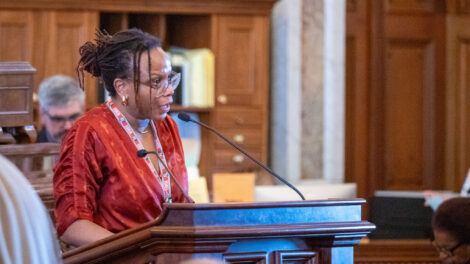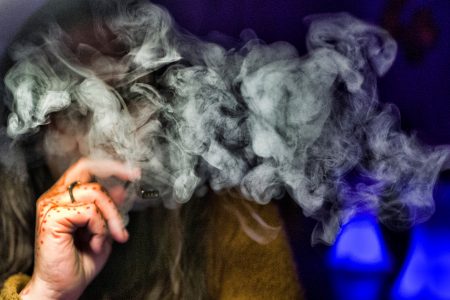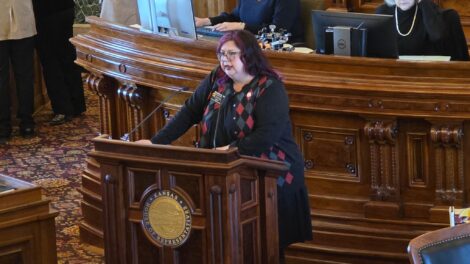Research departments across KU donate supplies to test for COVID-19

photo by: Provided by Scott Hefty/University of Kansas
KU molecular biosciences professors Erik Lundquist, left, and Susan Egan helped collect supplies from fellow KU researchers that might aid the state of Kansas in COVID-19 testing efforts.
As states around the country continue to struggle obtaining adequate supplies to test for the coronavirus, researchers at the University of Kansas stepped in to help fill the void in the Sunflower State after a request from Gov. Laura Kelly.
Kelly’s office requested lab kits to help process COVID-19 testing samples on Friday, and by Monday, KU had accumulated an estimated 20,000 columns that can be used to test collected samples.
Called Qiagen nucleic acid columns, the donated supplies help labs obtain the genome of COVID-19 from the nose swabs required to test for the respiratory virus. Once the genome is obtained, it can be used in diagnostic tests to determine if the virus is present, according to Simon Atkinson, KU vice chancellor for research.
Since it’s a multistep process to test for the new virus, it’s currently unclear how many tests KU’s donated supplies may ultimately produce. The Kansas Department of Health and Environment did not immediately respond to a question about how many tests KU’s donation could produce.
“I’m proud to be part of a research community characterized not only by its spirit of curiosity and innovation, but also by its incredible resilience and generosity,” Atkinson said.
As COVID-19 cases continue to skyrocket in the United States, the country is still lagging far behind testing rates of other nations. In Kansas, that has forced the KDHE to reevaluate its testing protocols due to a lack of supplies.
In Johnson County, the only county in the state in which KDHE has identified community spread of the virus, the department has emphasized that only the sickest patients can get tests. Testing patients with minor symptoms would create too much of a strain on hospital and lab resources, the department has said.
As of 10 a.m. Wednesday, KDHE had confirmed 126 positive cases of COVID-19 and conducted 2,360 negative tests.
The following departments across the university donated the testing columns:
• Anthropology
• Biodiversity Institute & Natural History Museum
• Chemistry
• Ecology & Evolutionary Biology
• Environmental Engineering
• Health, Sport & Exercise Sciences
• Kansas Biological Survey
• Molecular Biosciences
• Pharmacology & Toxicology
• Physics & Astronomy
The state of Kansas has promised to replenish all donated testing materials. And although it’s unclear how exactly the state may use all of KU’s supplies, it was refreshing to see the greater university community mobilize during an unprecedented global pandemic, said Mindie Paget, a spokesperson for the Office of Research.
“What we do know is that KU researchers mobilized quickly and demonstrated care and generosity at a time when people are looking for ways to help their communities get a handle on this virus,” Paget said.
More coverage: Coronavirus (COVID-19)
As the pandemic continues, the Journal-World will be making coverage of COVID-19 available outside of the paywall on LJWorld.com.
Find all coverage of city, county and state responses to the virus at: ljworld.com/coronavirus/
Please consider subscribing to support the local journalists who are helping to inform our community: ljworld.com/subscribe/




